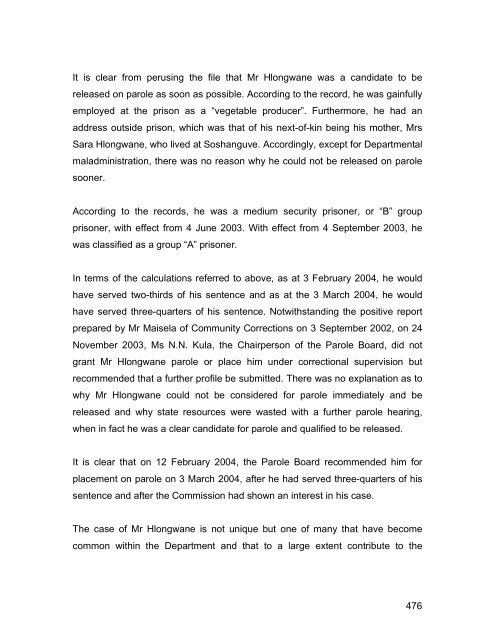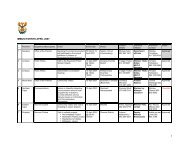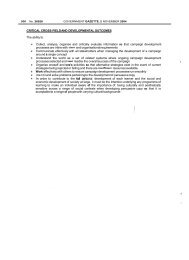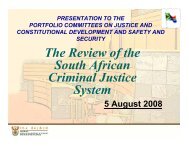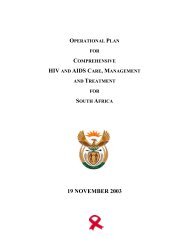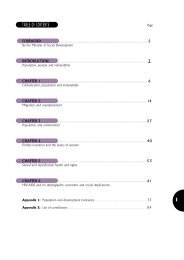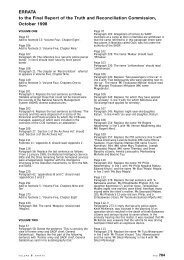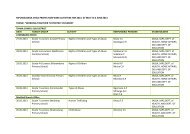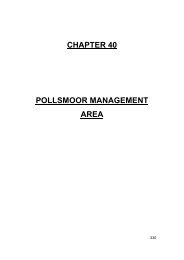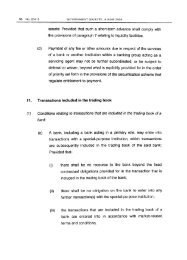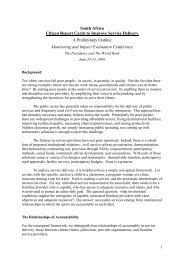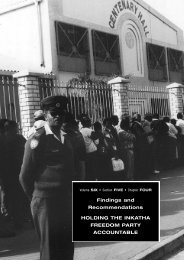Chapter 9 - Parole - South African Government Information
Chapter 9 - Parole - South African Government Information
Chapter 9 - Parole - South African Government Information
Create successful ePaper yourself
Turn your PDF publications into a flip-book with our unique Google optimized e-Paper software.
It is clear from perusing the file that Mr Hlongwane was a candidate to be<br />
released on parole as soon as possible. According to the record, he was gainfully<br />
employed at the prison as a “vegetable producer”. Furthermore, he had an<br />
address outside prison, which was that of his next-of-kin being his mother, Mrs<br />
Sara Hlongwane, who lived at Soshanguve. Accordingly, except for Departmental<br />
maladministration, there was no reason why he could not be released on parole<br />
sooner.<br />
According to the records, he was a medium security prisoner, or “B” group<br />
prisoner, with effect from 4 June 2003. With effect from 4 September 2003, he<br />
was classified as a group “A” prisoner.<br />
In terms of the calculations referred to above, as at 3 February 2004, he would<br />
have served two-thirds of his sentence and as at the 3 March 2004, he would<br />
have served three-quarters of his sentence. Notwithstanding the positive report<br />
prepared by Mr Maisela of Community Corrections on 3 September 2002, on 24<br />
November 2003, Ms N.N. Kula, the Chairperson of the <strong>Parole</strong> Board, did not<br />
grant Mr Hlongwane parole or place him under correctional supervision but<br />
recommended that a further profile be submitted. There was no explanation as to<br />
why Mr Hlongwane could not be considered for parole immediately and be<br />
released and why state resources were wasted with a further parole hearing,<br />
when in fact he was a clear candidate for parole and qualified to be released.<br />
It is clear that on 12 February 2004, the <strong>Parole</strong> Board recommended him for<br />
placement on parole on 3 March 2004, after he had served three-quarters of his<br />
sentence and after the Commission had shown an interest in his case.<br />
The case of Mr Hlongwane is not unique but one of many that have become<br />
common within the Department and that to a large extent contribute to the<br />
476


